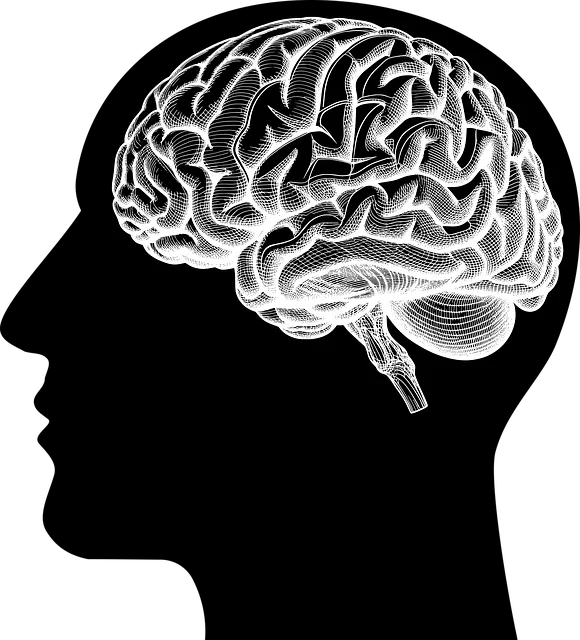The Aurora Kaiser Permanente Mental Health Access Center excels in risk assessment, prioritizing patient safety and well-being through comprehensive evaluations of suicidal ideation, violence, substance abuse, and psychotic symptoms. This proactive strategy not only identifies risks but also promotes tailored interventions like Trauma Support Services, fostering a positive healing environment. The center's holistic approach integrates regular workshops, training, and evidence-based practices to enhance professional resilience, improve patient outcomes, and maintain service quality, setting a standard for excellence in mental health care.
In the dynamic field of mental healthcare, risk assessment is a cornerstone for ensuring patient safety. This comprehensive guide explores crucial aspects of risk management tailored for professionals. We delve into best practices learned from the Aurora Kaiser Permanente Mental Health Access Center, a pioneering model for safe and effective care. By understanding risk assessment, identifying potential hazards, implementing robust strategies, and fostering continuous improvement, mental health practitioners can deliver high-quality services while mitigating risks.
- Understanding Risk Assessment in Mental Health Care
- The Aurora Kaiser Permanente Mental Health Access Center: A Model for Safe Practice
- Identifying Risks: Patient Safety and Clinical Supervision
- Implementing Effective Risk Management Strategies
- Continuous Improvement: Monitoring and Updating Risk Assessment Protocols
Understanding Risk Assessment in Mental Health Care

In the realm of mental health care, risk assessment is a vital tool that helps professionals navigate complex client scenarios. It involves meticulously evaluating and understanding potential risks associated with an individual’s mental state and behavior. At the Aurora Kaiser Permanente Mental Health Access Center, this process is integrated into patient care to ensure the safety and well-being of both clients and practitioners. By assessing factors such as suicidal ideation, violence, substance abuse, and psychotic symptoms, healthcare providers can implement appropriate interventions and support services, including Trauma Support Services, tailored to individual needs.
Risk assessment goes beyond identifying threats; it also encompasses promoting emotional well-being and self-esteem improvement techniques. Through comprehensive evaluations, mental health professionals can anticipate potential triggers, develop proactive strategies, and offer specialized care. This proactive approach not only mitigates risks but also fosters a more positive and supportive environment for clients to heal and grow.
The Aurora Kaiser Permanente Mental Health Access Center: A Model for Safe Practice

The Aurora Kaiser Permanente Mental Health Access Center stands as a beacon of best practices in ensuring safe and effective care for patients. This innovative center has been designed with a comprehensive approach to risk assessment, offering a model that significantly enhances the well-being of both mental health professionals and their clients. By prioritizing a culture of safety, Aurora Kaiser Permanente integrates robust Risk Management Planning for Mental Health Professionals into its core operations.
Through regular Stress Management Workshops Organization sessions and ongoing training, the center fosters an environment where professionals can openly discuss challenges, build resilience, and develop coping mechanisms. This holistic strategy not only boosts their confidence but also equips them to manage stress and adversity more effectively. As a result, mental health practitioners at Aurora Kaiser Permanente are better equipped to provide consistent, high-quality care, ultimately contributing to improved patient outcomes and job satisfaction.
Identifying Risks: Patient Safety and Clinical Supervision

Identifying Risks is a critical aspect of risk assessment for mental health professionals, especially when considering patient safety and clinical supervision at an Aurora Kaiser Permanente Mental Health Access Center. This involves recognizing potential hazards within the therapeutic environment that could impact both patients’ well-being and practitioners’ ability to provide effective care. For instance, long working hours or high caseloads can lead to burnout, compromising the quality of service delivery.
Effective risk management starts with robust clinical supervision, where experienced professionals guide and support their colleagues. This includes regular debriefings, peer review sessions, and access to specialized services like Stress Management Workshops Organization, which offers tools for coping with workplace pressures. Additionally, Trauma Support Services play a vital role in addressing the impact of traumatic experiences on both patients and clinicians, ensuring a safe and supportive treatment environment. Communication strategies that foster open dialogue and encourage seeking help are also essential, promoting a culture where risks can be identified and managed proactively.
Implementing Effective Risk Management Strategies

Implementing effective risk management strategies is paramount for mental health professionals at Aurora Kaiser Permanente Mental Health Access Center. These strategies should encompass a multi-faceted approach, integrating Compassion Cultivation Practices to foster empathetic connections with patients while promoting self-care among staff. By prioritizing Coping Skills Development, therapists can equip individuals with the tools necessary to manage stress and Anxiety Relief, ultimately enhancing treatment outcomes.
A structured framework involves regular risk assessments, clear communication protocols, and the integration of evidence-based interventions. Such strategies not only safeguard both clients and practitioners but also ensure a supportive environment that encourages open dialogue and proactive management of potential risks. This holistic approach, tailored to meet the unique needs of Aurora Kaiser Permanente’s patient population, sets a standard for excellence in mental health care.
Continuous Improvement: Monitoring and Updating Risk Assessment Protocols

At the Aurora Kaiser Permanente Mental Health Access Center, continuous improvement is a cornerstone of our risk assessment practices. We regularly monitor and update our protocols to ensure they remain effective and relevant in addressing the evolving needs of our clients. This proactive approach involves closely examining current data, best practices within the field, and feedback from both staff and patients. By doing so, we can refine our methods for identifying and mitigating risks associated with mental health conditions such as depression prevention and resilience building.
Emotional intelligence plays a pivotal role in this process. Our team members are encouraged to stay abreast of new research on emotional intelligence as it pertains to risk assessment. This enables us to incorporate strategies that enhance emotional intelligence, which is key to fostering strong therapeutic relationships and supporting clients in developing coping mechanisms. Regular protocol updates ensure our center remains at the forefront of mental health care, providing evidence-based practices tailored to individual needs.
Mental health professionals play a vital role in fostering patient safety, and effective risk assessment is a cornerstone of this process. As highlighted by the Aurora Kaiser Permanente Mental Health Access Center—a leading model for safe practice—comprehensive risk management involves identifying potential risks, implementing robust strategies, and continuously improving protocols. By learning from innovative centers like this one, mental health care providers can enhance their practices, ensuring patient well-being and delivering high-quality services.






